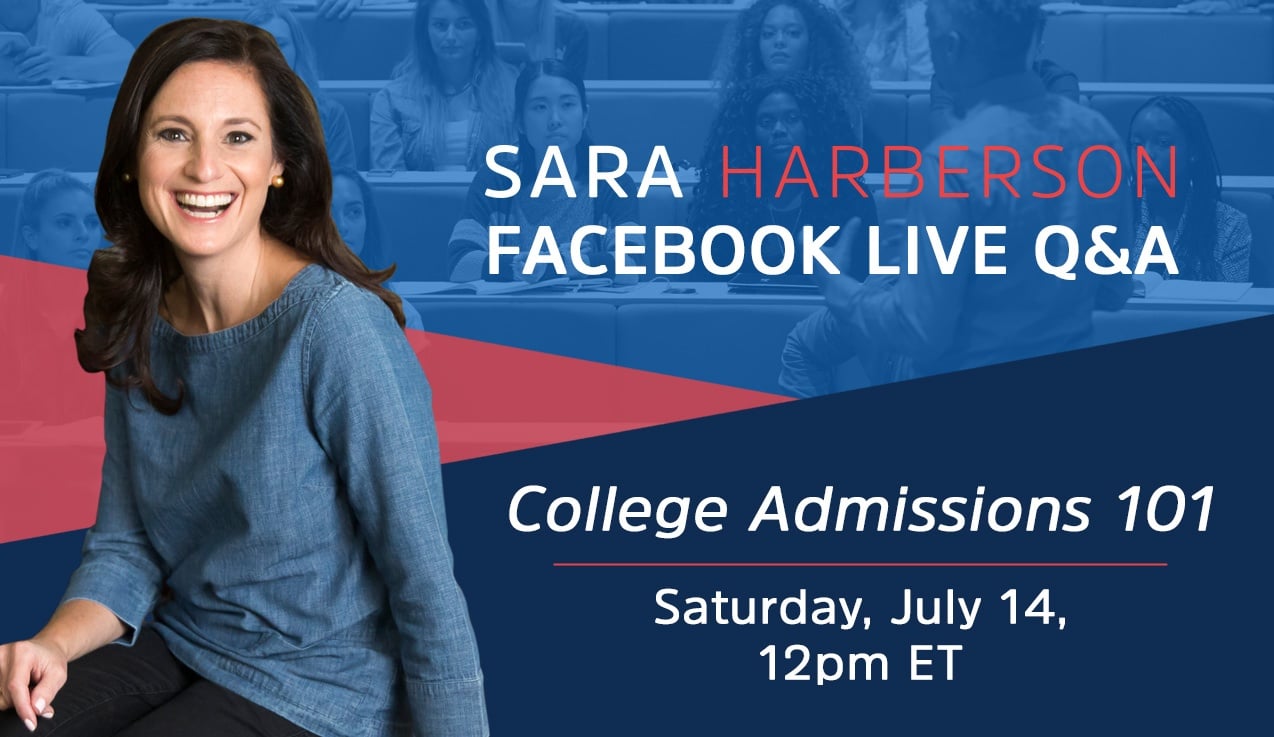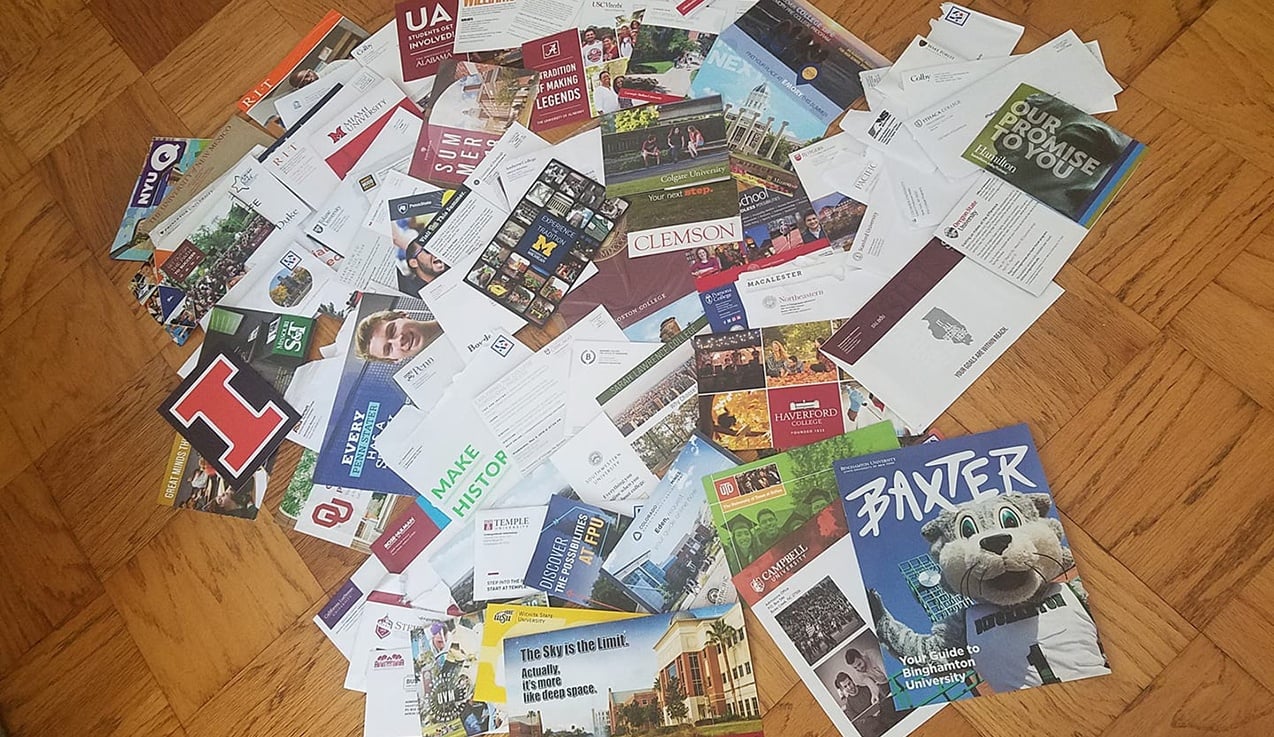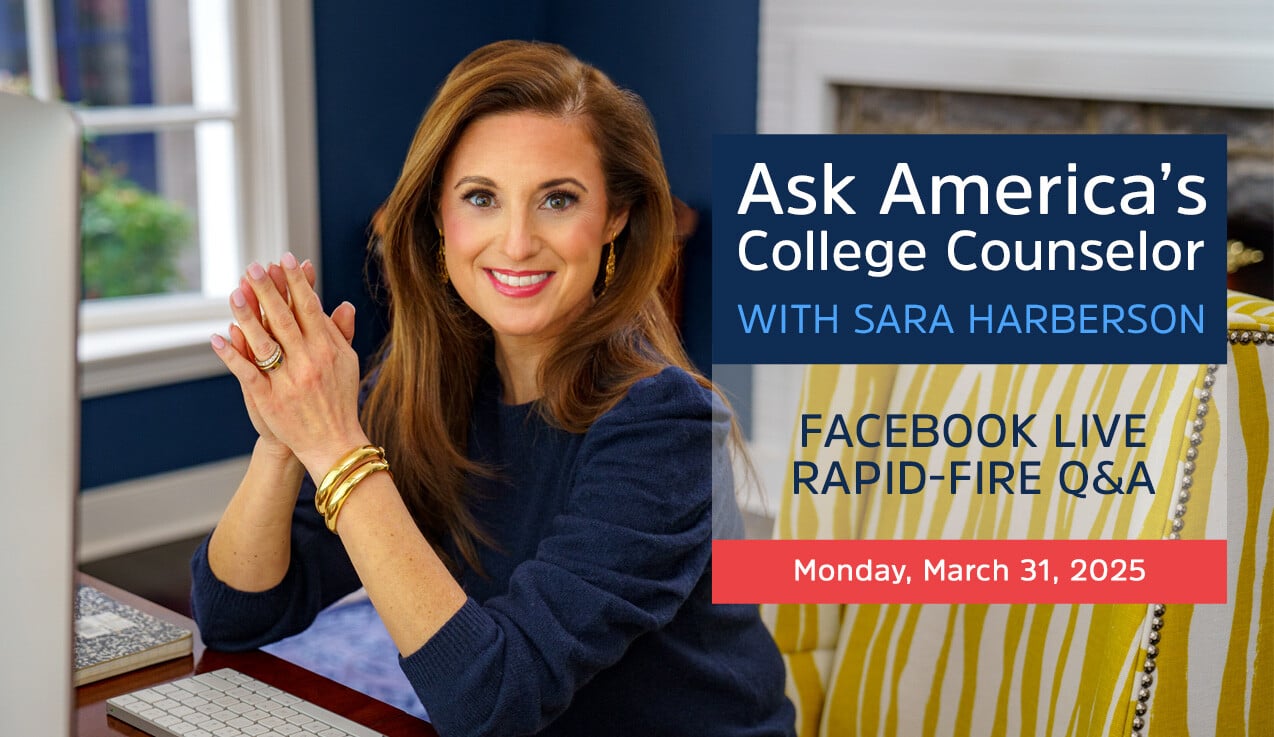As they say, knowledge is power. And the more you know about college admissions from the start, the better off you'll be come application season. During my recent Facebook Live Q&A, I went over the basics of college admissions—from testing to course selection to academics and more.
In case you missed it, here’s a recap with a list of the questions I answered, the full video of my session, and bonus questions that I didn't get to answer live!
HERE ARE SOME OF THE QUESTIONS YOU'LL SEE ME ANSWER:
- My daughter just finished her junior year and wants to submit her college application early this summer. However, her classes may change for senior year and her GPA will likely increase. Should she wait to submit?
- My son will be completing the Coalition Application. He is applying to three schools. Will he have to complete essays for each school in addition to the main Coalition essay?
- If I apply to a school with Restrictive Early Action, can I apply early to another private school in order to qualify for a certain Honors College or scholarship?
- Do you recommend applying Early Decision? If so, what criteria would be needed for deciding to go that route?
- What is the difference between Early Decision and Early Action?
- How does a student go about choosing a major?
- Does a student who is interested in majoring in Biology need to have top grades in math or other courses?
- If you have two possible majors in mind, is it better to apply to the major that is in less demand at any given college?
- When trying to narrow down colleges to apply to, should we consider price? Or should we apply to dream schools even though we most likely won’t be able to afford them?
- What is the best way to come up with a balanced list of colleges?
- What is demonstrated interest?
- Should a student open up separate email accounts for the college admissions process?
- What if a student is unable to visit a college campus before they apply? How do they show demonstrated interest?
- What is the Common Data Set?
- My daughter has been inundated with mail from colleges. How can she tell if any of those schools are actually interested in her attending versus simply wanting her $70 application fee?
- My son got a few low grades at the beginning of 9th grade. How will these grades be evaluated? Should they be addressed in his essay?
- What should a student do if they are unable to take an AP class because of a scheduling conflict?
- Is there a downside to doing well in the AP class, but not doing as well on the AP exam?
- How many AP classes does a student need for a competitive college?
- Are colleges impressed with the AP Capstone program?
- Is it okay to apply to college without your latest SAT or ACT scores?
- Which teachers should you be asking for letters of recommendation?
- What's the best way to complete the activities section of the Common App?
- Is it okay to write your college essay about mission trips or community service?
- When should students have their college interviews? How important are they?
BONUS Q&A- BIG QUESTIONS THAT DIDN'T MAKE THE VIDEO
1. How many pages is an average college resume?
Not all colleges require or even recommend them. But if a student puts one together, I'd stick to one page or two pages at the most. A lot of alumni interviewers will ask for a resume before the interview so it's good to have one ready!
2. How much does it matter if you choose not to report AP scores on the Common App?
An admissions officer will wonder why there's not an AP score if the student took the AP class. But I'd rather have that then a low score (that technically isn't supposed to count for admissions) influencing their opinion of the student. When I worked at Penn and saw a low AP score (especially related to what the student wanted to study) it negatively impacted the student given how competitive the pool was.
3. How about AP compared to Dual Enrollment ? What’s best?
Dual enrollment is a really good option if the student plans to attend an in-state public/state institution. These colleges will be much more generous with giving students college credit for these classes. If the student is looking at out-of-state colleges and private, selective colleges, I'd recommend APs.











